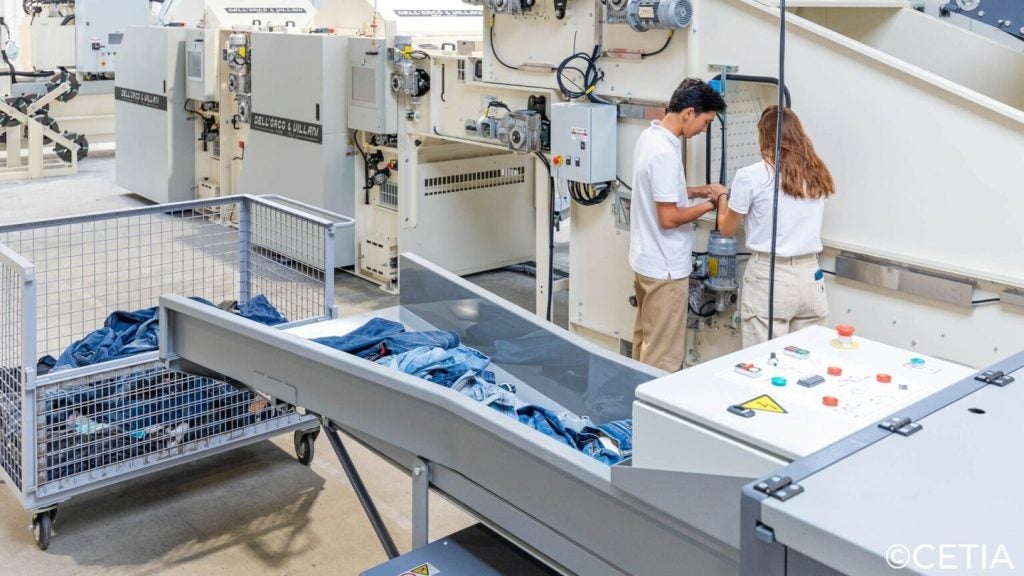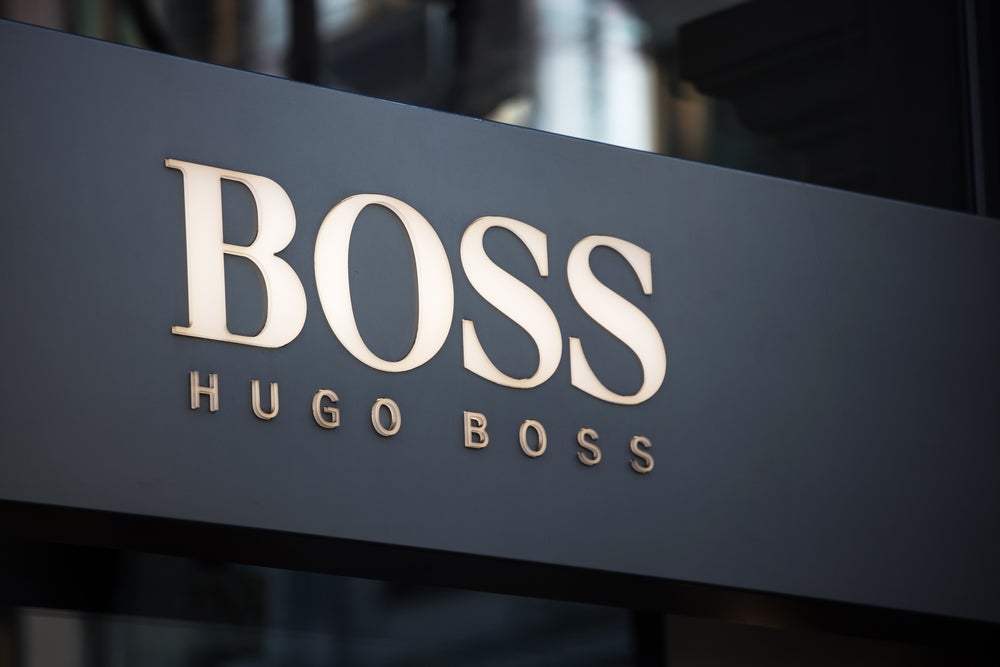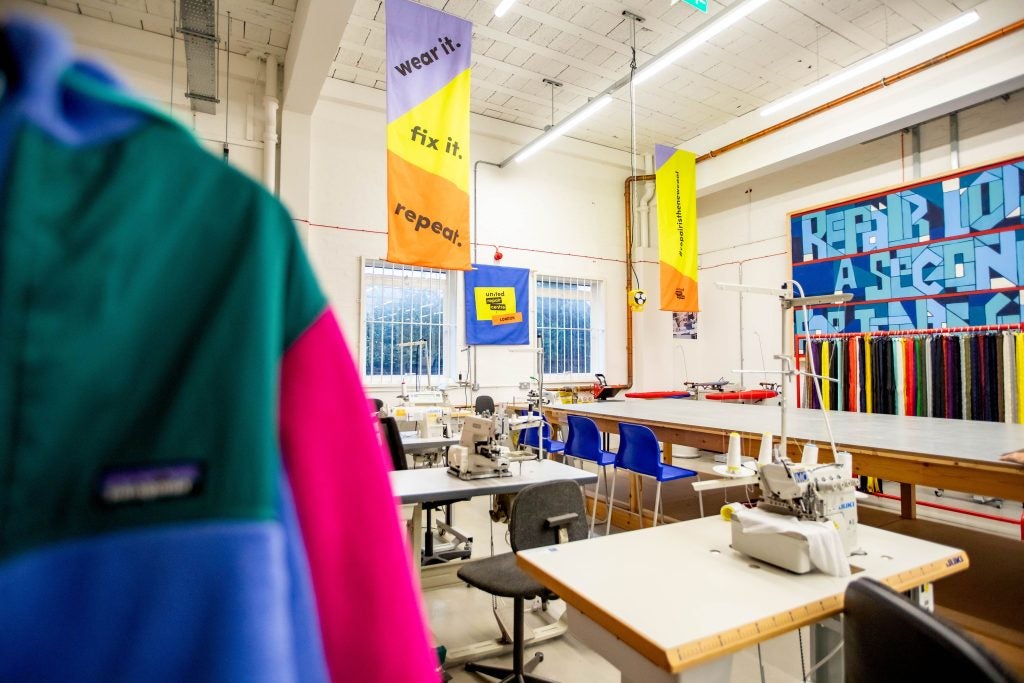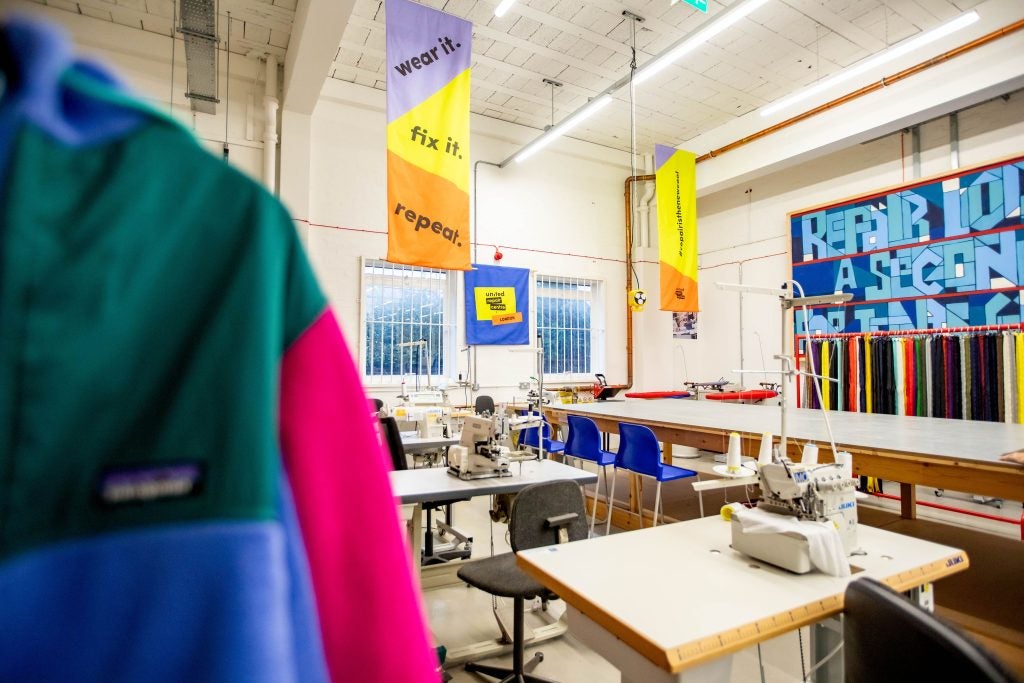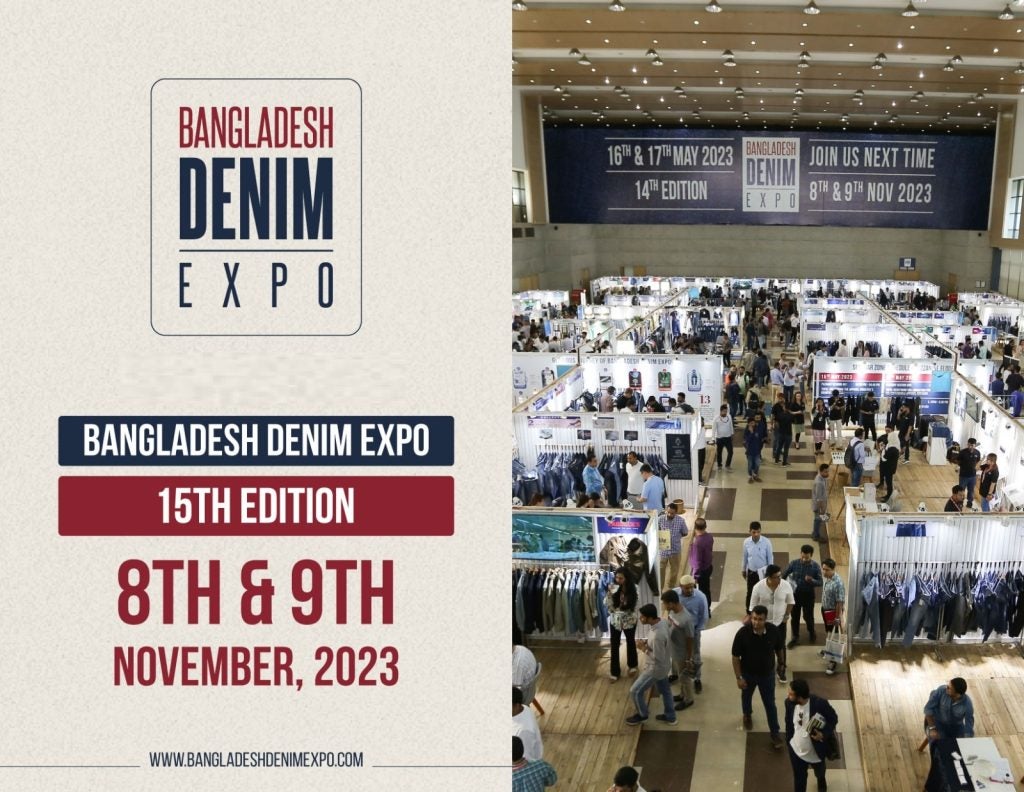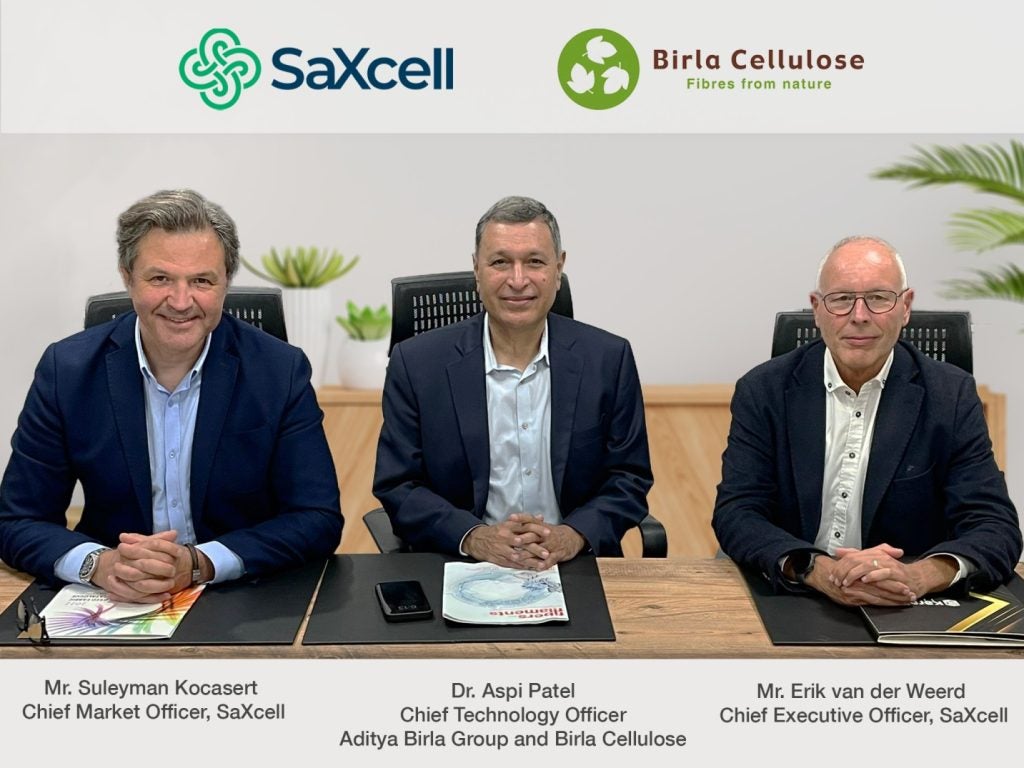In early September new tech company Cetia launched its first centre for artificial intelligence (AI)-assisted textile and leather recycling in Hendaye, France.
Leveraging automation, robotics and artificial intelligence, Cetia’s aim is to build systems that can improve the performance and profitability of sorting, dismantling and recycling textiles. Among its innovations is a machine that uses AI to scan garments, identify hard elements such as zippers and buttons and then remove them via laser. French newspaper Le Figaro reports that this state-of-the-art equipment costs some €2m ($2.1m).
Cetia is said to be the first company in the world to produce a machine that automatically separates shoes from their soles – a seemingly unremarkable operation that is nevertheless unprecedented in the world of textile recycling. This proprietary system, for which two patents have been filed, uses robotics to remove glued, sewn, injected or vulcanised soles at a rate of 120 shoes per hour.
“There’s nothing spectacular in what we’ve done,” Cetia’s director Chloé Salmon Legagneur is quoted as saying in online publication Mint Lounge. “But we’ve done it.”
Backed by large retailers like Decathlon and Zalando, which are seeking industrial-scale solutions to textile recycling, the company’s work involves prototyping concepts and demonstrating their technical feasibility on an industrial scale. Cetia has received a €900,000 cash injection from eco-organisation Refashion, along with nearly €1m from France’s Nouvelle-Aquitaine region.
“Brands are telling us that they want their products’ textiles to be recycled in their own industry, rather than being used in insulation or flooring,” Legagneur told Le Figaro. At present, Europe recycles just 1% of used clothes into new clothes, and, in France alone, 700,000 tonnes of textiles are thrown away every year.
The challenge to date has been to separate textile fibres with enough precision and care for them to be usable in new garments – a process that is typically carried out by hand. However, Cetia’s AI-laser machine is said to be able to achieve this separation at a much faster rate.
The company’s AI-assisted machines can also sort clothes by colour and textile composition with a throughput of a garment per second. “This machine uses a near-infrared sensor to detect the garment's material quite accurately - whether it's 80% cotton, 20% polyester or 50/50,” Legagneur explains to Euro News.
"None of this is a magic idea. It's just common sense," she says. “But it's about putting together the engineers and the financing and the companies who need these solutions, and it's only now that these things are coming together. Ten years ago, no one wanted it.”
For now, the recycling innovations of Cetia constitute the first tentative step towards keeping the European textiles industry competitive, as companies brace themselves for the uncertain impact of the EU’s proposed Extended Producer Responsibility scheme for textiles.
Our signals coverage is powered by GlobalData’s Thematic Engine, which tags millions of data items across six alternative datasets — patents, jobs, deals, company filings, social media mentions and news — to themes, sectors and companies. These signals enhance our predictive capabilities, helping us to identify the most disruptive threats across each of the sectors we cover and the companies best placed to succeed.


